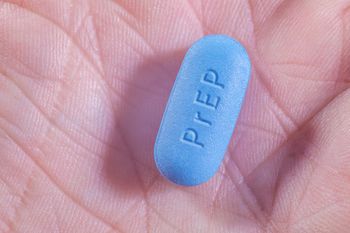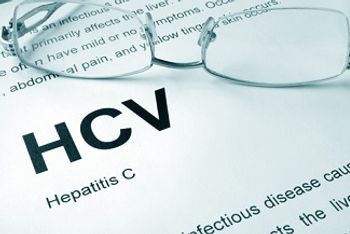
Ryan K. Shields, PharmD, MS, discusses his research presented at MAD-ID 2019 on T2Candida's place in rational antifungal management.

Ryan K. Shields, PharmD, MS, discusses his research presented at MAD-ID 2019 on T2Candida's place in rational antifungal management.

Here is a look at infectious disease-related US Food and Drug Administration news from the week of May 5, 2019.

We’ve rounded up a list of important US Food and Drug Administration (FDA) and US Department of Agriculture (USDA) recalls from this past week.

The total number of bed days saved with outpatient oritavancin administration was 683 days throughout the study period.

Stay up-to-date on the latest infectious disease news by checking out our top 5 articles of the week.

A team of investigators from the University of North Carolina Medical Center found that oseltamivir prophylaxis did not reduce the rate of influenza within the first year following a lung transplant.

The primary outcome of the study, which seeks to fully assess infection-related clinical outcomes and microbiological cure rates of PZT for ESBL infections, was clearance of the causative organism from index infection site on first follow-up culture.

A study at SUNY Upstate University Hospital found that AUC-based vancomycin monitoring does not result in higher total drug and monitoring cost compared to trough-based monitoring for patients with MRSA bacteremia.

Ahead of the summer travel season, the CDC is reminding Americans traveling abroad to be aware of tickborne rickettsial diseases.

In order for stewardship programs to be successful they must be supported by all of the health system’s stakeholders – but are we forgetting valuable stakeholders?

In patients with MRSA bacteremia, implementing AUC/MIC-guided vancomycin dosing resulted in decreased average troughs and a decrease in daily vancomycin dose administered.

A study found that there was no statistically significant difference in CDI recurrence within 12 weeks between patients receiving oral vancomycin prophylaxis compared those who did not.

In a tiny number of cases, treating HIV with ART actually makes CD4+ T cell levels fall.

Use of Verigene Blood Culture Gram-Negative without stewardship involvement was shown to improve time to optimal therapy, which was primarily driven by decreased time to antibiotic escalation.

In both the lefamulin and moxifloxacin treatment groups, the median time from treatment initiation to clinical response was 4 (3-5) days.

Patients with only a gram-negative infection and/or mixed gram-negative/gram-positive pathogens were more likely to receive IET (22.8%, 270 out of 1184; and 22.8%, 633 out of 2778, respectively) compared with patients with infections caused by only gram-positive organisms (6.5%, 381 out of 5891).

Compared with no pharmacist involvement, a greater number of appropriate antiretroviral regimens were initiated with partial pharmacist involvement (62% vs. 32%, p = 0.0096).

The authors of a new study say the use of antibiotics and proton pump inhibitors are among the list of risk factors for recurring C diff infections.

A survey of nearly 300 pharmacy students found that 91% were aware of PrEP and 61% reported high familiarity with PrEP prescription guidelines, but knowledge gaps still remain.

DONATE-HCV trial offers new hope to those on waiting lists for new hearts and/or lungs.

Plague. West Nile Virus. Zoonotic influenza. What else made the CDC list of the top 8 zoonotic diseases of most concern in the US?

The intersection of technology and infection control comes to life with UV robots.

A large variance in how family physicians prescribe antibiotics couldn’t be explained by patient characterizations, suggesting a need for improving interventions in antimicrobial stewardship programs.

The FDA has issued label updates for a handful of fluoroquinolone antibiotics to note the risk of aortic dissections and aortic aneurysms in certain patients.

More than 80% of ill individuals reported consuming ground beef prior to falling ill, yet health officials have been unable to pinpoint a common supplier, distributor, or brand responsible for this outbreak.

Contagion® will be heading to Orlando, Florida, on Wednesday, May 8, 2019, to report on the annual Making a Difference in Infectious Diseases (MAD-ID) 2019 conference.

Triatoma sanguisugas, an insect also known as a “kissing bug,” can transmit the parasite Trypanosoma cruzi, which causes Chagas disease.

Understanding barriers and facilitators of PrEP could help improve adherence among young men and transgender women of color, a recent study found.

A new review recommends updated guidelines for diagnosing and managing Candida and C diff coinfection.

Here is a look at infectious disease-related US Food and Drug Administration news from the week of April 28, 2019.